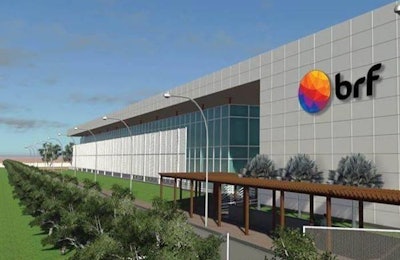
BRF has presented the 2030 VISION plan, a growth strategy that will lead the company towards an approximate annual revenue of BRL100 billion (US$19.5 billion) in the next decade, when it intends to invest more than BRL 55 billion.
To this end, the company, whose proprietary brands include Sadia, Perdigão, Qualy and Banvit, expects to cement its leadership as a global food company with high added value, strong brands, high-quality products, and even more admired by consumers, providing increased return and expanded margins.
BRF aims to achieve local presence in some of the world’s largest added-value consumer centers, and to expand its share in ready meals, increasing its presence in the promising high-added value pork and pet markets, in addition to leading the biggest transformation in this generation’s consumption of new proteins.
“We intend to further establish ourselves as a global food company with high added value, with a portfolio of strong brands and increasingly practical, tasty, high-quality and reliable products whenever our clients and consumers want, wherever they want and however they want. Our intention is to operate sustainably, taking the main lead and being agents of transformation,” said BRF Global CEO Lorival Luz. “The results we have presented so far demonstrate that we have discipline and maturity to start a new growth cycle over the next decade.”
Emphasis on pork, pet, ready meals and alternative proteins
Within the 2030 VISION, in the Brazil Market, BRF wants to lead the market of ready meals, which is expected to reach BRL16 billion in the coming years and has a growing demand linked to the clients’ consumption trend, expecting to grow bigger than four times its current size.
The high added-value pork segment is also the company's focus of activity, which offers great potential to quintuple its size in Brazil. Expanding international presence with local participation and relevance in some of the largest added-value consumer centers in the world is also a high point in the company's strategy. The goal is to access markets that represent two thirds of global consumption.
Going through a steady and uninterrupted evolution for some years, the pet market is part of BRF's plans, in which the company intends to be one of the leaders in five years’ time. With an average growth of 12% per year, it is estimated that this segment may reach BRL40 billion and be replicated in other regions where the company is or intends to be present.
BRF also expects to take a leading position in the market for meat substitutes and new sources of protein, in which the greatest food industry transformation is expected. This nascent industry has the potential to achieve more than BRL 13 billion, and it is expected that BRF will have the capacity to speed up and lead this food evolution.
The company intends to make organic investments worth BRL 55 billion in the next decade, mainly with funds from the company's own cash flow. It also plans to use new lines of credit and to support the current debt profile with an average tenure of 9 years to finance these investments.
“Throughout this journey, we anticipate prudent leverage levels of up to 3.0x net debt/EBITDA. We will be quick to seize opportunities and prudent to protect ourselves from any potential adversities,” Luz added.
Phases of 2030 VISION
The first phase of 2030 VISION goes from 2021 to 2023, a period in which the company intends to expend efforts on boosting productivity and operational efficiency in order to expand margins and manage costs. By the end of this first stage, net revenue is estimated at BRL65 billion, which will promote a two-fold EBITDA increase.
In the second phase, from 2024 to 2026, the company expects to have a more optimized capital structure, with an expected growth of around 2.5x in net revenue and EBITDA, compared to current levels.
In the third stage, from 2027 to 2030, it is estimated that BRF will enter a maturation phase of most initiatives and accelerate gains of economic value and continued investments.
In this period, it is expected that net revenue will rise to more than BRL 100 billion, with an added-value food portfolio of over 70%, and EBITDA is expected to reach 3.5x the current level, with margins above 15% and ROIC of around 16%.
New vice president position created
The 2030 VISION of also includes a macro sustainability plan with public ESG (Environmental, Social and Corporate Governance) commitments. Accordingly, starting in 2021, BRF executives will have ESG goals linked to the delivery of this plan.
A vice presidency of Institutional Relations, Reputation and Sustainability has been set up and will take effect from January 2021 to advance the ESG agenda.
The new vice president will be Grazielle Parenti, with long experience in the food industry. Since 2019, Grazielle has served as director of Institutional Relations at BRF, and is the current chairperson of the Brazilian Food Industry Association (ABIA) Steering Board.
“With an engaged team, better brands, unique features and working with ethics and transparency, we are confident about the future of our Company. We will make BRF even bigger and better,” Luz said.

















